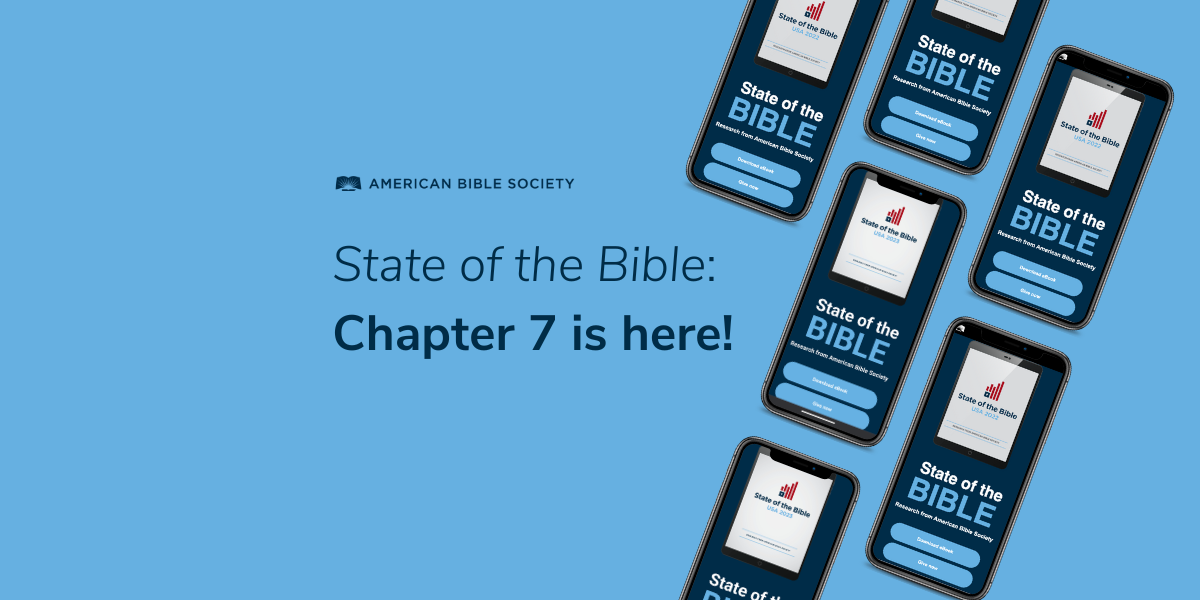American Bible Society today released the seventh chapter of their 14th annual State of the Bible report, which focuses on Bible engagement and human flourishing levels among Americans who identify as unaffiliated with any religion, as casual participants in their faith, or as nominal Christians. The seventh chapter of State of the Bible 2024 is now available to download at StateoftheBible.org.
“One quarter of all Americans are unaffiliated with any religion. In our research, we call them ‘Nones.’ It’s tempting to think they are unreachable, but one tenth of Nones say they have made a commitment to Jesus that’s still important to them. Another quarter say they’re curious about Jesus or the Bible. They’re not coming to church—that’s clear—but maybe the church could come to them,” said John Farquhar Plake, PhD, American Bible Society’s Chief Innovation Officer and editor-in-chief of the State of the Bible series. “We found something else, too. On measures of human flourishing, Nones score decidedly lower than Practicing Christians in every category. Could the church help them flourish by drawing them into a deeper connection with Jesus, the Bible, and the church community?”
The State of the Bible findings come from a nationally representative survey performed for American Bible Society by NORC at the University of Chicago, using their AmeriSpeak panel. The data came from 2,506 online interviews with American adults in all 50 states and the District of Columbia.
Key findings analyzed in Chapter 7: Nones and Nominals
- Nearly half of Evangelicals (49%) are Practicing Christians. Catholics (16%) and Mainline Protestants (19%) have much smaller percentages of Practicing Christians. In each group except Evangelicals, more than half are Nominals—affiliating with the church but not attending even once a month (page 144).
- In all areas of the Human Flourishing Index, Americans unaffiliated with any religion (Nones) score significantly lower than average. This includes reporting lower levels of hope and higher levels of stress (page 136).
- Practicing Christians rank higher in levels of human flourishing, including in metrics related to hope and stress, than non-committed groups of respondents. When considering spiritual vitality, more than half of those considered Practicing Christians are categorized as thriving (52%), while only 13% are in the two unhealthy categories. This indicates that faith and regular interaction with Scripture produce a sense of hope and peace not found elsewhere (pages 147–148).
- 25% of Nones report being curious about the Bible and/or Jesus. Additionally, 10% report having made a personal commitment to Jesus in the past, presenting an opportunity for the church to engage with those who do not claim an active relationship with Jesus (page 138).
In November and December 2024, American Bible Society will release two additional chapters in the State of the Bible story, including Loneliness and the Bible and Philanthropy.
To download the seventh chapter of State of the Bible 2024, visit StateoftheBible.org.
*For descriptions on how Scripture engagement was measured and reported, please see page 153 of the eBook available for download at StateoftheBible.org.





